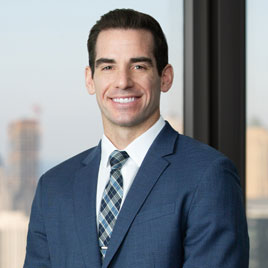The recent unanimous U.S. Supreme Court decision, Groff v. DeJoy, has clarified a 46-year-old precedent for providing religious accommodations to employees under Title VII of the Civil Rights Act.
Under Title VII, employers are required to accommodate their employees’ religious practices so long as doing so would not impose an undue hardship on the employer. With no statutory definition of undue hardship, courts have relied on the holding in the1977 case, Trans World Airlines, Inc. v. Hardison, which held that employers could claim an undue hardship based on anything more than a “de minimis” expense.
While the Hardison decision provided employers with a very low threshold to claim undue hardship, the unanimous Groff decision seemingly seeks to correct that precedent. In other words, employers will now have to make a much more substantial showing to claim undue hardship.
The Groff case involved a postal worker who requested to have Sundays off in observance of his religious faith. The United Stated Postal Service (“USPS”), argued that such an accommodation would pose an undue hardship. The U.S. Court of Appeals for the Third Circuit held in favor of the USPS, agreeing that exempting Groff from working on Sundays would burden USPS and his co-workers and therefore created an undue hardship.
The Supreme Court reversed and remanded the Third Circuit’s decision, stating that an undue hardship “is shown when a burden is substantial in the overall context of an employer’s business.” The Court did not set forth what facts would meet the new standard but did provide that going forward, appellate courts “must apply the test to take in to account all relevant factors in the case at hand, including the particular accommodations at issue and their practical impact in light of the nature, size, and operating cost of an employer.” In other words, an employer must now demonstrate that granting the accommodation would subject it to substantial costs or expenditures.
The Supreme Court went to note, likely given the underlying facts of the USPS’ assumption that requiring other employees to work overtime in order to accommodate someone’s request not to work on the Sabbath simply equates with an “undue hardship.” Rather, the Supreme Court stated that an impact on co-workers is only relevant if that impact has further ramifications on an employer’s business. In that context, the Supreme Court emphasized that how co-workers perceive accommodations based on religious beliefs or practice, is not in and of itself an “undue burden.”
While little specific guidance is offered from the Groff decision, it is clear that the request for religious accommodations will come to the forefront of issues faced by employers. Thus, employers would be well-advised to consult with attorneys regarding religious accommodations and the heightened standard for claiming an undue hardship.
Michael Luchsinger is a shareholder in our Chicago office and is licensed in both Illinois and Wisconsin. He can be reached at mluchsinger@smsm.com.
Kerry Rhoads is a shareholder in our Detroit office and is licensed in both Michigan and Ohio. She can be reached at krhoads@smsm.com.
For further inquiry contact us at info@smsm.com.


